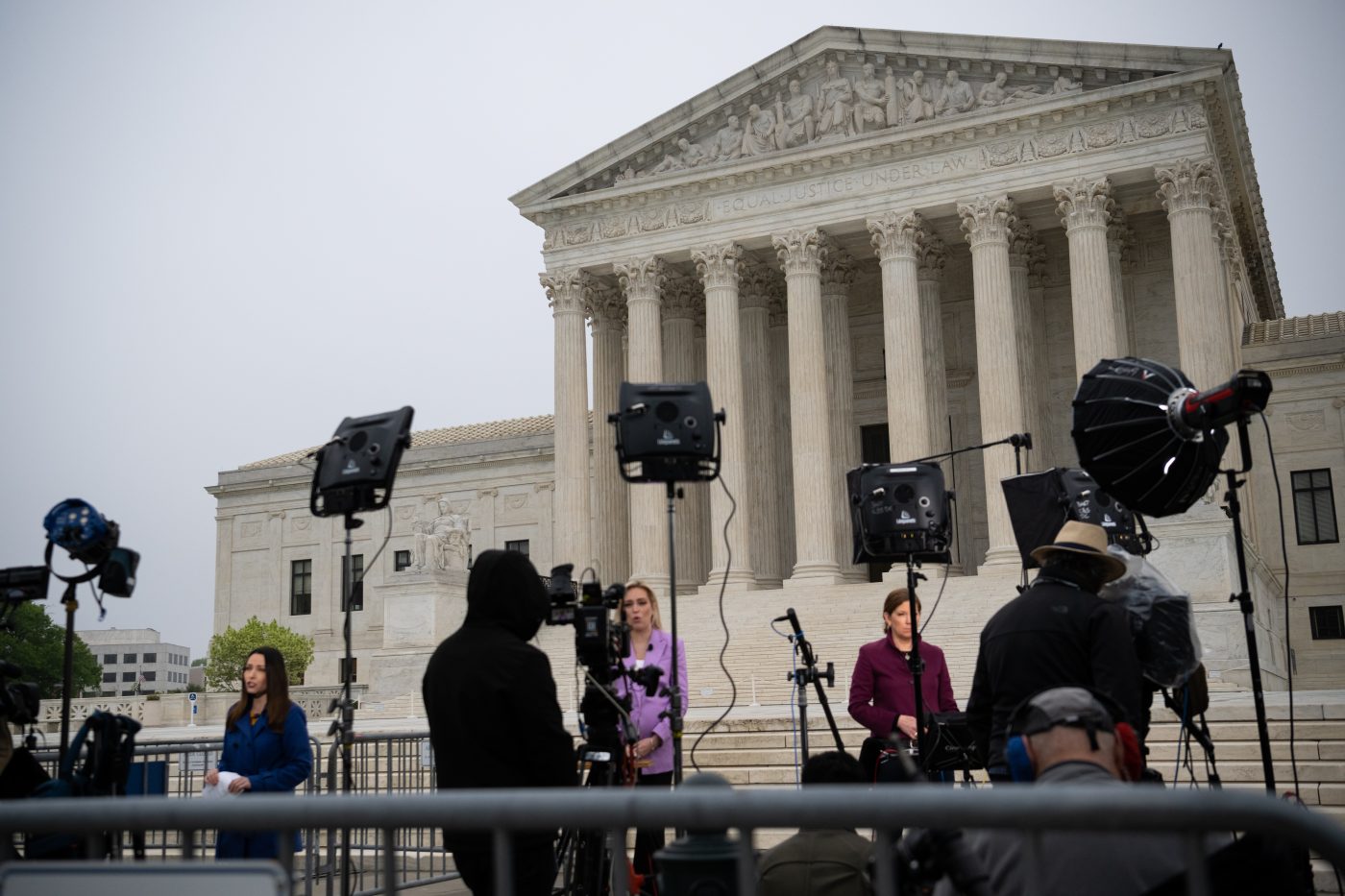The cases could overhaul the rules around social media and reinterpret how the First Amendment is applied online. But they probably won’t. Instead, when the rulings are released later this spring, they look set to entrench the free speech status quo in the United States.
If so, the US would have moved in the opposite direction as its transatlantic allies. The European Union’s Digital Services Act, which went into effect last year, forces Facebook, YouTube, and other internet services to combat misinformation. When technology companies are notified of hate speech, terrorist propaganda, and other illegal material in countries in the EU, the companies are required to take it down or face massive fines.
In contrast, the US legal offensive wants to stop companies from taking down content. Conservatives fear that platforms are censoring their content, depriving them of their First Amendment rights. The Supreme Court cases address when the government can force social media companies to keep content up, and when the government can make them take it down.
So far, the court has proved wary of imposing strict new digital rules. Last year, it took up a pair of cases that would make a new hole in Section 230, the Internet industry’s liability shield. Under it, platforms aren’t held responsible for illegal material uploaded to their sites. Instead, they are responsible for taking down some kinds of illegal content (like child sexual abuse material and terrorism content) when they are informed, but otherwise, they are broadly immune from lawsuits.
This is especially important for defamation lawsuits. Without this legal safe harbor, YouTube would be held responsible for every upload, Blogger for every blog post and TripAdvisor for each restaurant or hotel review. Such user-generated content would become too dangerous to publish. In Twitter v. Taamneh and Gonzalez v. Google, the court ruled last year for the tech companies and sidestepped Section 230. “We really don’t know about these things,” Justice Elena Kagan admitted. “You know, these are not, like, the nine greatest experts on the internet.”
After leaving Section 230 intact, this year’s cases focus on how to balance the First Amendment rights of citizens versus the First Amendment rights of social media companies to moderate their platforms. Can the government tell social media companies to take down content on their platforms? Why? What checks are in place? The three main cases of this term are:
- NetChoice, LLC. v. Paxton: NetChoice, a trade association representing social media platforms, sued Texas to block its law requiring platforms to change their content moderation policies. The Texas law prohibits social media companies for discrimination based on “viewpoints.” When the law was proposed, lawmakers rejected amendments to exclude Holocaust denial, health misinformation, and material promoting terrorism from the definition of “viewpoints.”
- Moody v. NetChoice, LLC.: NetChoice seeks to overturn a Florida law restricting social media content moderation. The Florida law prohibits social media platforms from banning or “deplatforming” a user, including decreasing how often posts appear.
- Murthy v. Missouri: The state of Missouri sued the federal government, arguing that the Biden administration violated citizens’ free speech rights by influencing how social media platforms handled COVID-19 and election disinformation.
The three other cases zero in on a crucial, central issue: when and how can the government influence social media companies’ behavior? When does that influence become a violation of the First Amendment rights of companies (in NetChoice) or users (in Murthy)?
Some conservative Justices, in particular Samuel Alito and Clarence Thomas, seem sympathetic to arguments that the companies should be limited in their ability to suppress user posts. After the January 6 attack on the US Capitol, social media companies removed the accounts of political figures, including banning then-President Donald Trump. Republicans in Texas and Florida accused those platforms of censoring conservatives.
But at the Supreme Court, at least five of the justices found fault with the Florida and Texas laws and their arguments. They compared social media to traditional media rather than to utilities such as phone companies. This is an important legal distinction, because the laws governing utilities prohibit discrimination based on “viewpoint” already, while the laws for newspapers do not. Chief Justice John Roberts acknowledged that the First Amendment stops the government from censoring speech. However, private companies can censor speech on platforms they control. The New York Times can choose not to publish an article.
A majority also seems poised to back the government’s right to influence social media companies, the question posed in the Murthy case. Conservatives saw censorship in the Biden Administration’s lobbying of social media companies to take down COVID-19 and election disinformation. Although Justice Alioto said he couldn’t imagine government officials pressuring The New York Times like they did Facebook, both conservative Brett Kavanaugh and liberal Kagan disagreed, saying that as White House lawyers they themselves had pressured the press to avoid publishing a story.
Unlike the EU, the US will not impose stringent content moderation rules on social media. But the cases before the Supreme Court suggest that a bid by US conservatives to turn platform moderation into illegal censorship will fail.
Joshua Stein recently completed a postdoctoral fellowship at the Georgetown Institute for the Study of Markets and Ethics. His work focuses on ethics, technology, and economics.
Bandwidth is CEPA’s online journal dedicated to advancing transatlantic cooperation on tech policy. All opinions are those of the author and do not necessarily represent the position or views of the institutions they represent or the Center for European Policy Analysis.

Meeting China’s Trade and Tech Challenge
How the US and Europe Can Come Together





